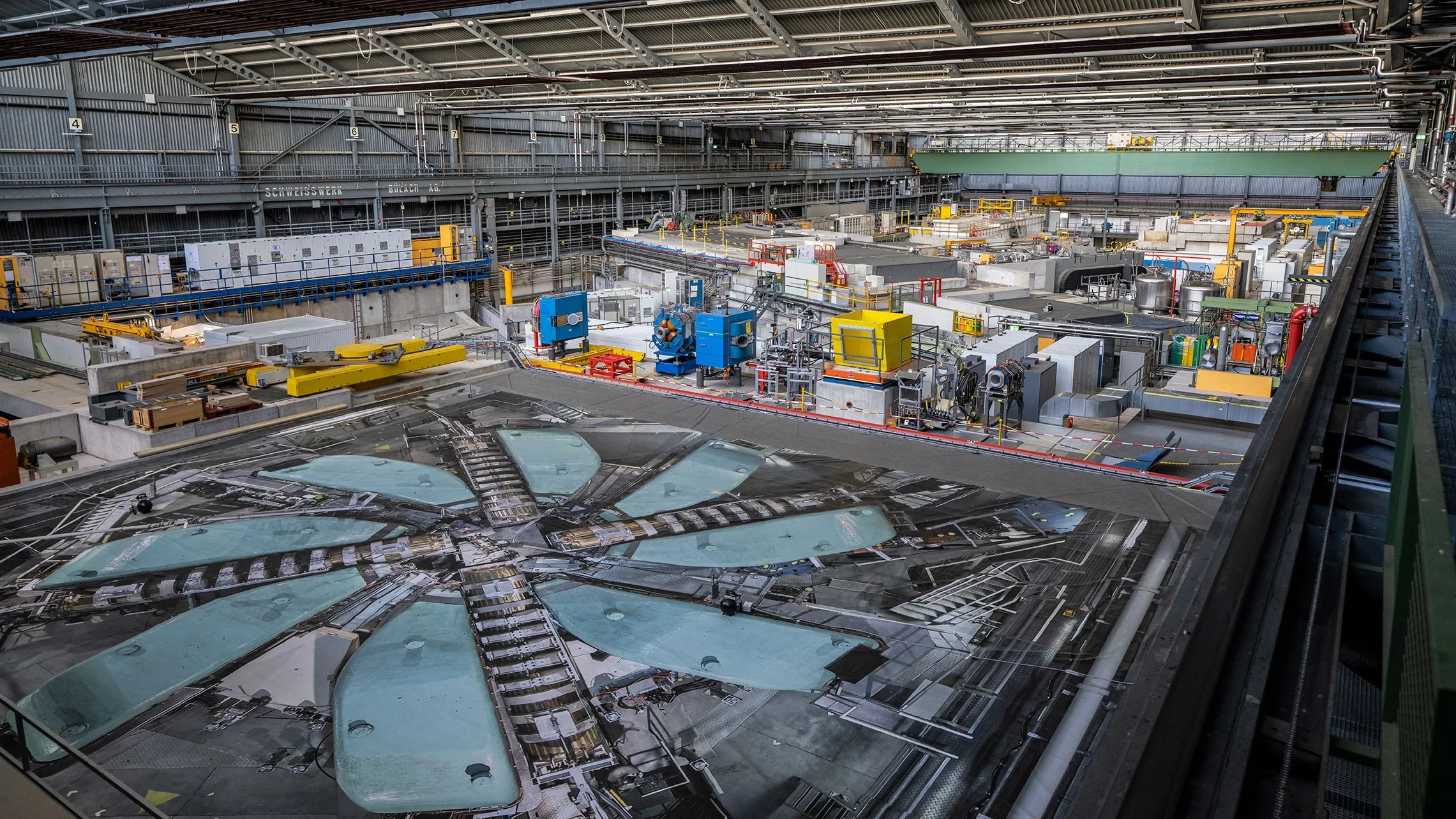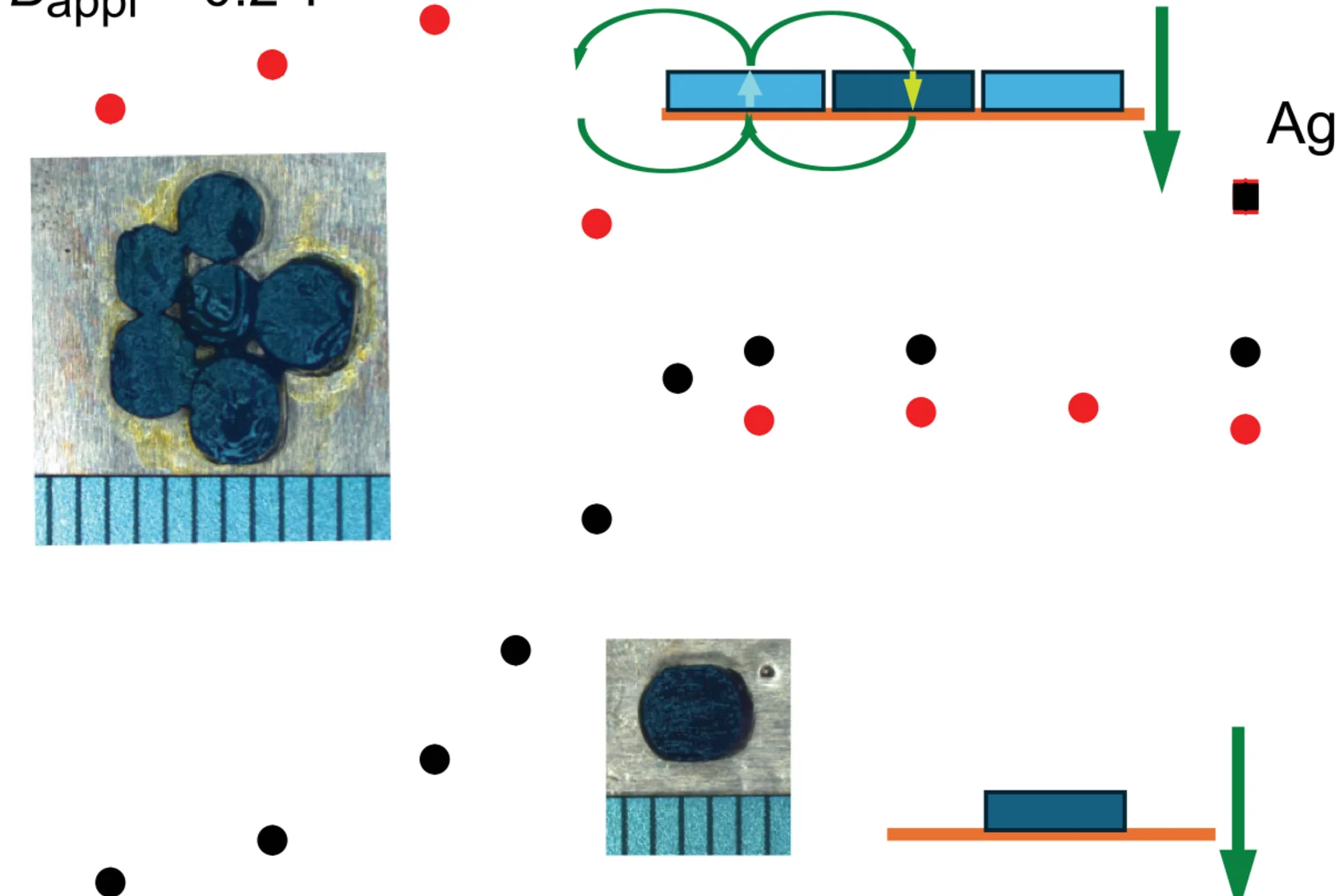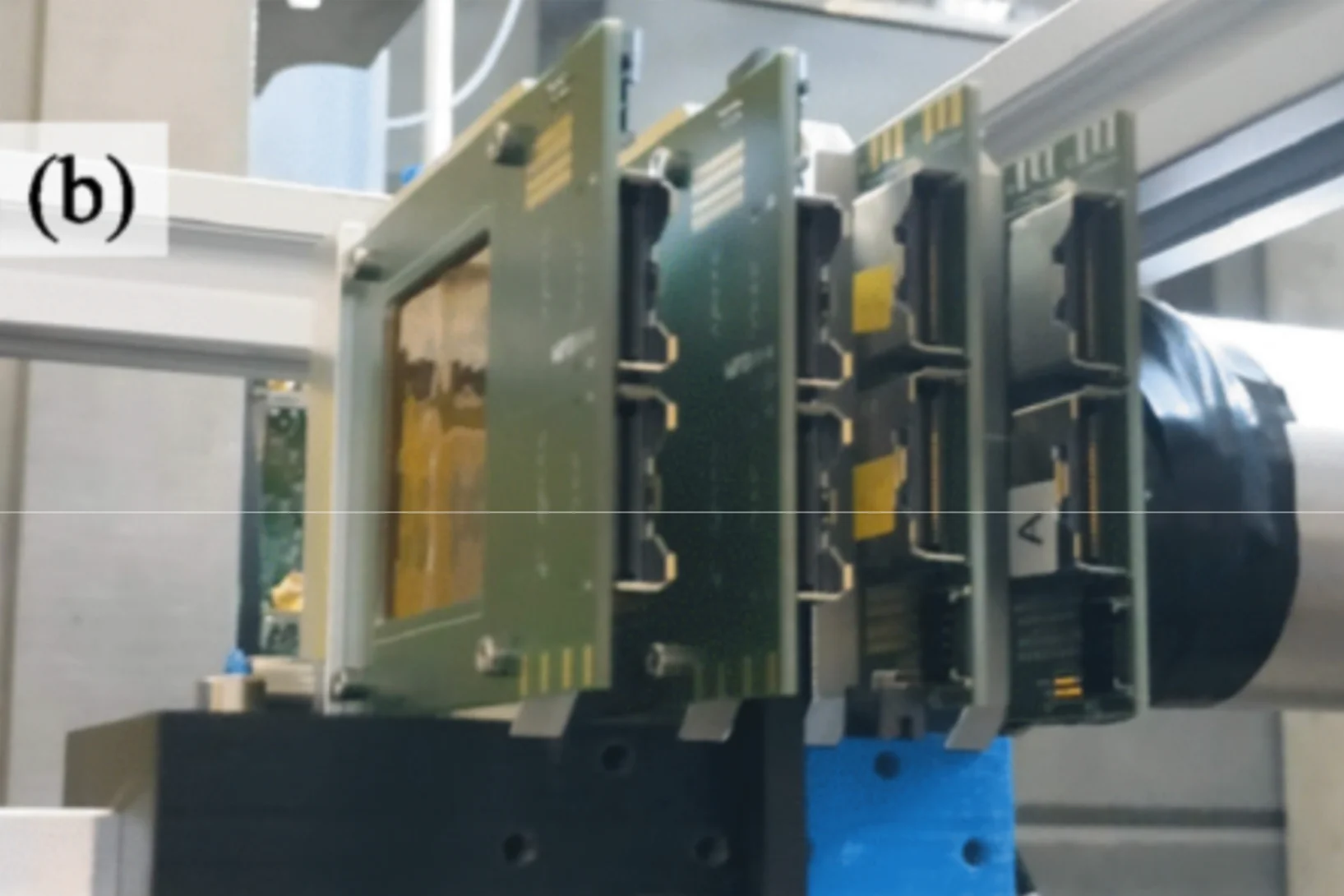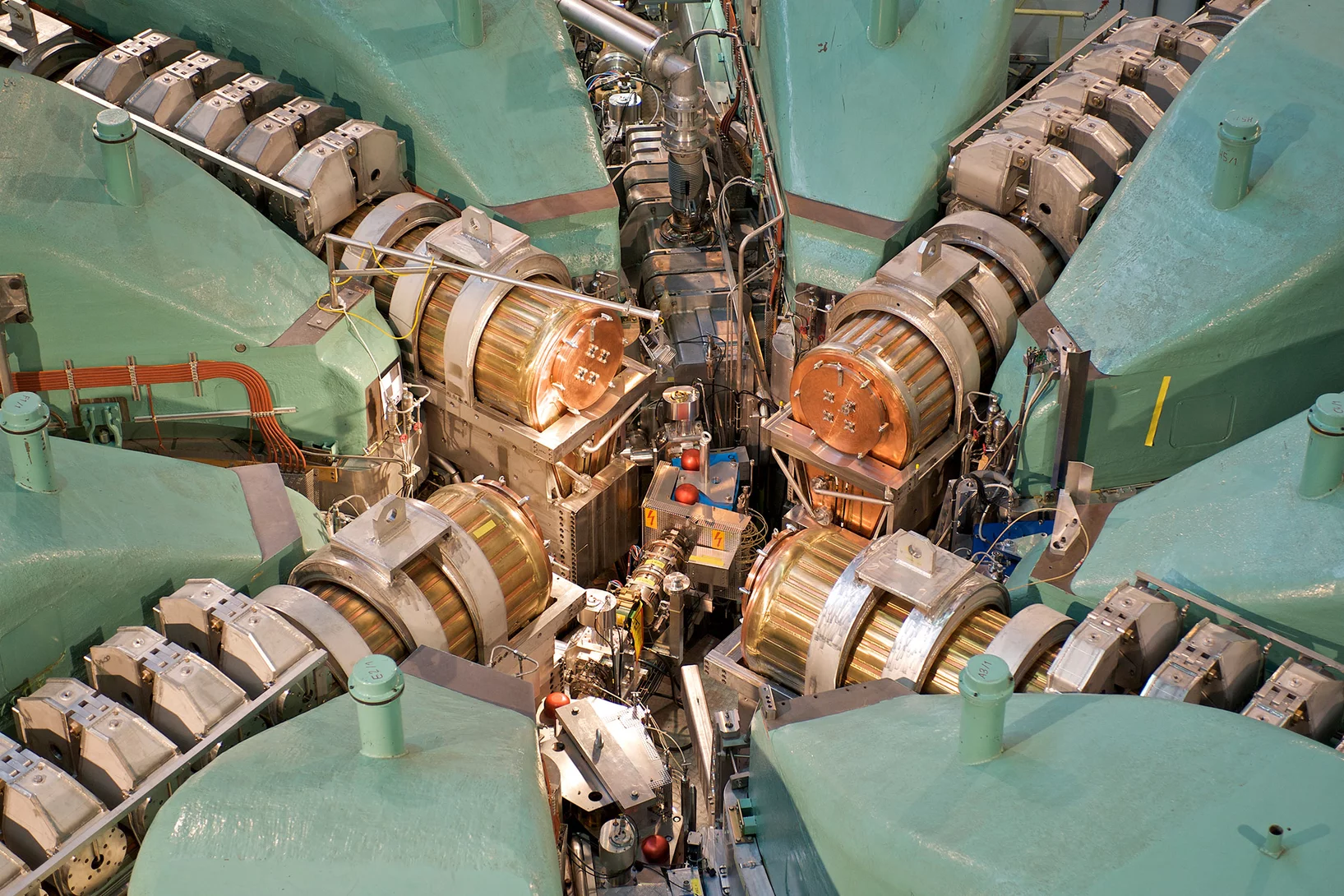µSR - Muon Spin Rotation, Relaxation or Resonance: A research tool using muons as sensitive local magnetic probes in matter.
Research at the LMU focuses mainly on magnetic properties of materials and on positive muons or muonium (bound state of a positive muon and an electron) as light protons or hydrogen substitutes in matter.
Worldwide unique: The Low-Energy Muon Beam and µSR Spectrometer for the study of thin films, layers and surfaces, the possibility to perform high-field µSR with a field up to 9.5 Tesla, and the Extraction of Muons On Request for high frequency resolution and slow relaxation measurements.
Call for Proposals
Next Deadline: June 01, 2026.
Latest Scientific Highlights and News
Muon Knight Shift as a Precise Probe of the Superconducting Symmetry of Sr2RuO4
Muon spin rotation (𝜇SR) measurements of internal magnetic field shifts, known as the muon Knight shift, are used for determining pairing symmetries in superconductors. While this technique has been especially effective for 𝑓-electron-based heavy-fermion superconductors, it remains challenging ...
Wichtige Förderung für die Myonenforschung
Das PSI erhält einen NCCR: Mit dem Projekt «Muoniverse» wird die Forschung an den Strahllinien für Elementarteilchen namens Myonen weiter ausgebaut – an der weltweit führenden Anlage für Myonenstrahlen.
Advanced muon-spin spectroscopy with high lateral resolution using Si-pixel detectors
Muon-spin spectroscopy at continuous sources has stagnated at a stopped muon rate of ∼40kHz for the last few decades. The major limiting factor is the requirement of a single muon in the sample during the typical 10µsdata gate window. To overcome this limit ...




